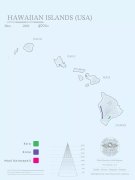Will drinking coffee increase the burden on the heart? Can I have coffee for a heart attack? How much coffee is consumed?

You may have heard the doctor's advice that coffee can cause a rapid heartbeat and lead to an abnormal heart rate. But let's take a look at the latest research results.
Lead researcher Gregory Marcus said: "Health care workers often advise against drinking coffee to avoid arrhythmias, but in fact we can't find evidence that coffee drinkers have a higher risk of arrhythmias."
Marcus, a professor of atrial fibrillation at the University of California, San Francisco, said: in fact, coffee helps reduce the risk of atrial fibrillation and other arrhythmia problems.
Arrhythmia refers to the abnormal beating of the heart, too fast, too slow or irregular. According to the American Heart Association, arrhythmias can cause cardiac arrest or stroke if left untreated.
In the study, Marcus and his colleagues collected data on nearly 300000 people from Biobank, a long-term study conducted in the UK, where the average age of participants was close to 57.
During the 5-year follow-up, more than 13000 people developed arrhythmias, including more than 4700 cases of atrial fibrillation or atrial flutter, nearly 800 cases of supraventricular tachycardia, nearly 400 cases of ventricular tachycardia, and more than 300 cases of ventricular extrasystole.

The researchers found that people who drank at least five cups of coffee a day were less likely to develop these conditions than those who did not drink coffee, and had a 3% lower risk for every extra cup of coffee they drank.
Marcus says coffee is good for the body. It is rich in antioxidants and can boost metabolism, exercise performance and attention. Drinking coffee regularly can also reduce the risk of heart disease and stroke.
However, the study only looked at the link between the two, with some exceptions, especially for those with abnormal heart rates.
Dr Laurence Epstein, director of electrophysiology at Northwell Health in Manhattan, New York, said: "it has been said for a long time that caffeine causes heart rate problems, and although reading this article can reassure the public, I think the public needs to know what every study contains and does not dabble in." Dr. Epstein was not a participant in the study.
Coffee drinkers have a lower risk of heart rate problems, according to the study. "the results sound good, but we need to know that each patient is different," Epstein said.
"some patients will tell you the factors that cause atrial fibrillation, but some patients can't," he said. For some people, caffeine is an absolute trigger. If they drink anything that contains caffeine, such as coffee or chocolate, it will definitely cause atrial fibrillation, but for others, caffeine has no effect at all. People need to know about their bodies. Don't overdo it. Moderation is the most important thing. "

Marcus also believes that for those who already have arrhythmias, coffee may indeed cause atrial fibrillation, and patients with heart disease should pay attention to the response of caffeine to them.
"our goal in treating patients with arrhythmias is to help improve their quality of life, make them feel good and be able to do what they want to do," Marcus said.
He added: "if coffee conflicts with it, then you should give up, and if coffee is helpful to patients without any side effects, then they can continue to enjoy the happiness of coffee."
The results of the study were scheduled to be presented at a meeting of the Heart rate Society, but the meeting was cancelled because of the coronavirus epidemic, and the data and conclusions of the study were not widely cross-examined by peers.
Important Notice :
前街咖啡 FrontStreet Coffee has moved to new addredd:
FrontStreet Coffee Address: 315,Donghua East Road,GuangZhou
Tel:020 38364473
- Prev

Rare and high-quality Indonesian coffee with floral scent the flavor of Indonesia Sulawesi Tuoja coffee producing area
Professional coffee knowledge exchange more coffee bean information please follow the coffee workshop (Wechat official account cafe_style) Indonesian coffee with herbs, spices, mellow and low acid coffee flavor is loved by coffee glutton. Is this the flavor of all coffee beans grown in Indonesia? No, the coffee beans from Indonesia's Sulawesi Island are compared to the coffee produced in Sumatra, Indonesia.
- Next

Isn't growing coffee at low altitude a boutique coffee? Flavor characteristics of Hawaiian Kona Coffee beans
Professional coffee knowledge exchange more coffee bean information Please follow the coffee workshop (Wechat official account cafe_style) mention Hawaii, many people always think of the sun, sand and waves, while the front street baristas think of Kona coffee full of maltose. The soft acidity of Kona coffee and the sweet coffee flavor of maltose can make many fans of Qianjie coffee miss. Summer
Related
- Beginners will see the "Coffee pull flower" guide!
- What is the difference between ice blog purified milk and ordinary milk coffee?
- Why is the Philippines the largest producer of crops in Liberia?
- For coffee extraction, should the fine powder be retained?
- How does extracted espresso fill pressed powder? How much strength does it take to press the powder?
- How to make jasmine cold extract coffee? Is the jasmine + latte good?
- Will this little toy really make the coffee taste better? How does Lily Drip affect coffee extraction?
- Will the action of slapping the filter cup also affect coffee extraction?
- What's the difference between powder-to-water ratio and powder-to-liquid ratio?
- What is the Ethiopian local species? What does it have to do with Heirloom native species?

